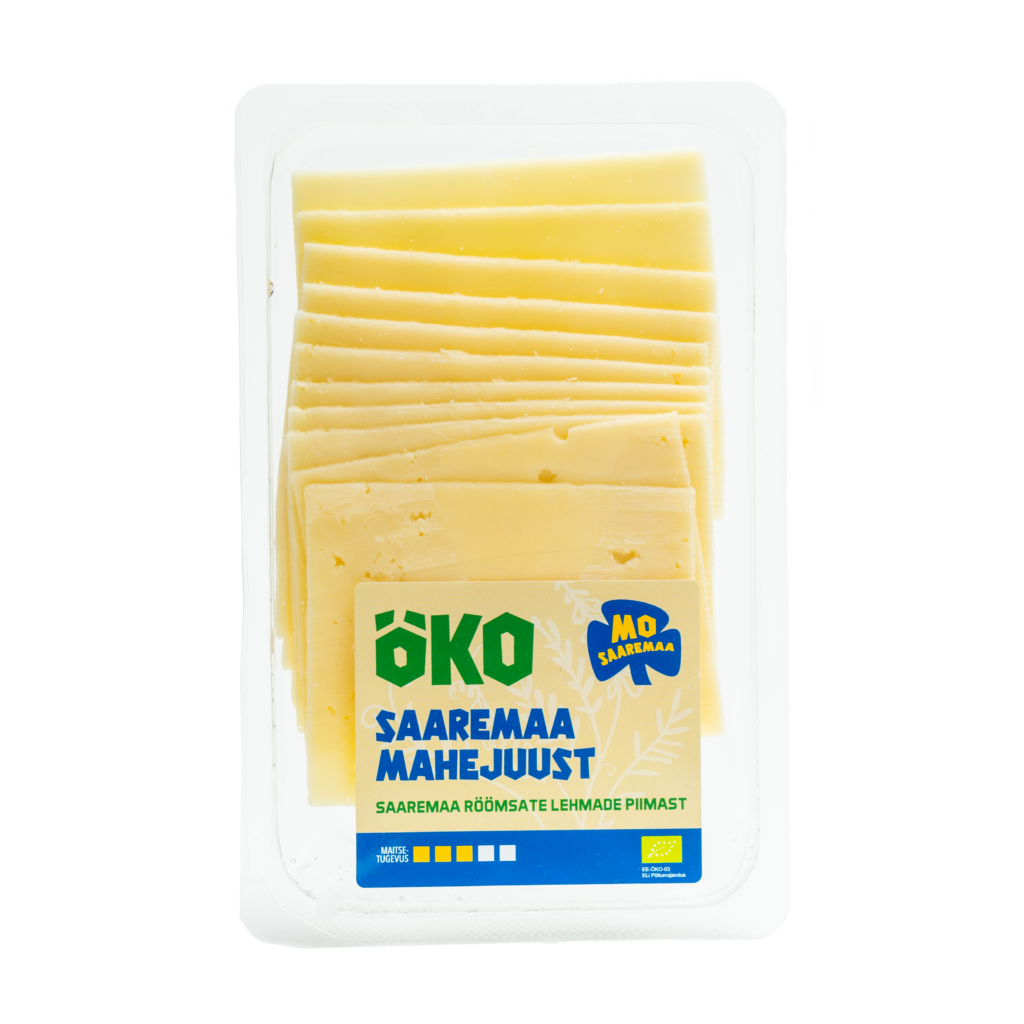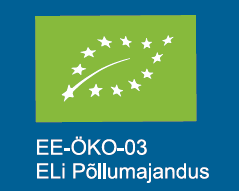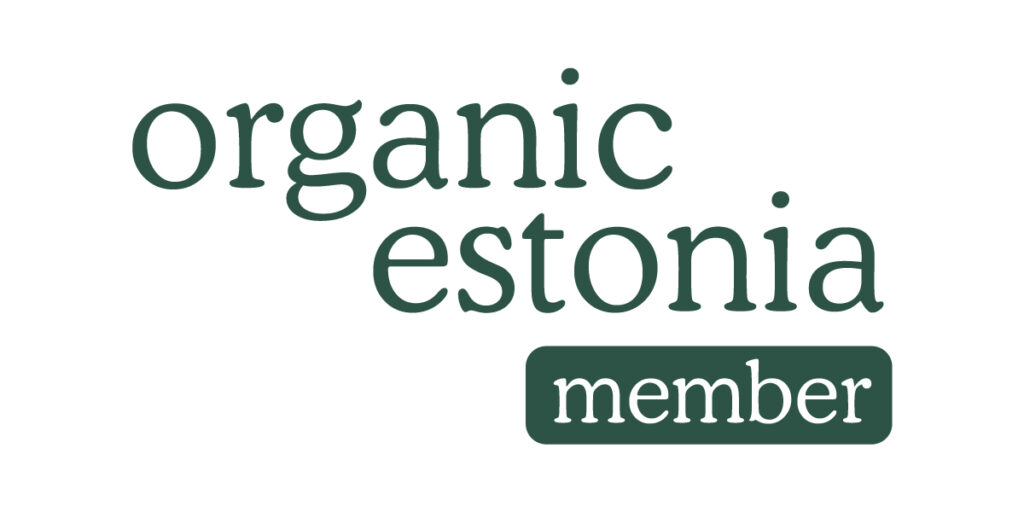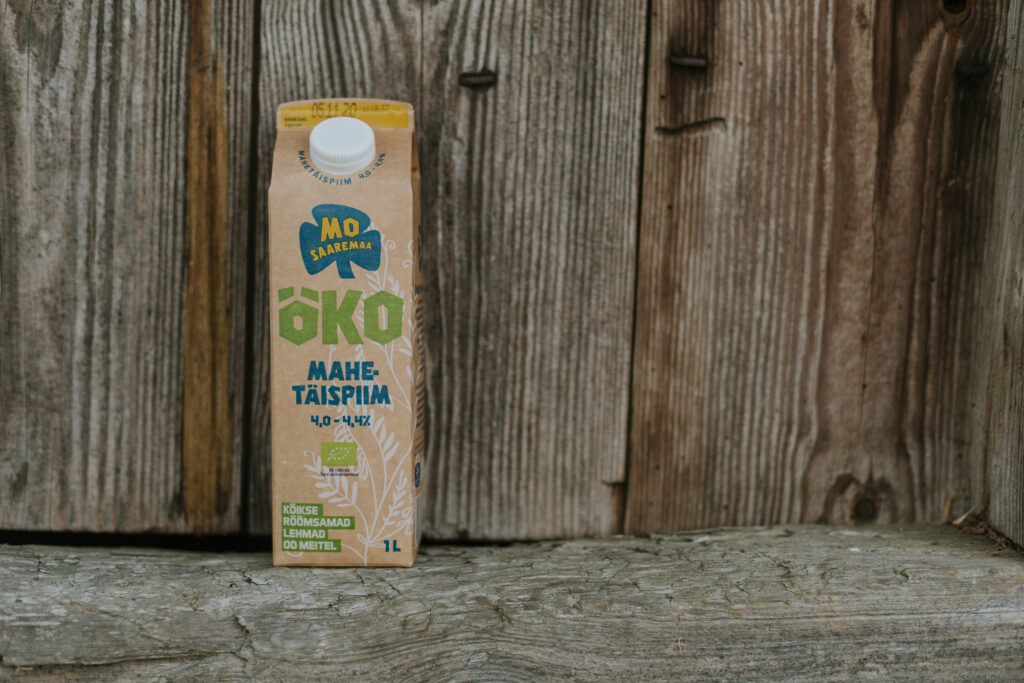Saaremaa Dairy Industry is the largest organic dairy producer in Estonia.
Milk and cheese are made from organic milk sourced from the biggest islands in the Baltic Sea. To produce Mo Saaremaa organic milk and organic cheese, we use milk from our own cooperative’s certified organic farmers.
You can read more about one of our dedicated organic farms – Männaka Farm on Hiiumaa – here.
How does organic livestock farming differ from conventional farming?
It has long been said in Estonia that “a cow milks from its mouth” — meaning that only a well-treated animal gives good milk.
For this reason, in Saaremaa and Hiiumaa, organic and conventional animal husbandry may not look very different: farmers care for their animals with attention and respect.
However, organic production follows strict rules.
- No synthetic pesticides are used in fields.
- Mineral fertilisers are replaced with manure and green fertilisers.
- Animals are not given conventional feeds, as these may contain pesticide residues.
Estonia maintains very strict and frequent inspections on organic farming — samples are collected several times a year in both livestock and milk production.
Every stage, from animal welfare to the final product, is closely monitored, and placing the organic label on products requires an official certificate.
What is the core principle of organic livestock farming?
In essence, it prioritises the needs and wellbeing of the animals.
Cows are free to go outdoors all year round if they wish, and their feed is carefully controlled.
Estonian organic regulations specify, among other things, that building design and technology for organic livestock must ensure:
- easy access to feed and water,
- suitable air circulation, dust levels, temperature, humidity, and gas composition,
- natural ventilation and sufficient natural light.




Barns must provide comfortable, soft and dry resting areas, suitable for the animal’s species and age.
The number of animals per barn must allow them to stand freely, lie down comfortably, turn, clean themselves, and perform species-specific movements.
Cows must have year-round access to an outdoor walking area.
Feed and substances prohibited in organic farming
Organic animal feed may not contain:
- antibiotics, coccidiostats, medications,
- growth stimulants or productivity enhancers,
- genetically modified organisms (GMOs) or products made from them,
- or derivatives of genetically modified organisms.
Native cattle breeds on the islands
Many organic farms on the islands raise Estonian Red and Estonian Native (Maakarja) cattle.
The Estonian Native breed is the oldest local dairy breed, developed from aboriginal cattle adapted to our climate.
Its milk is richer and sweeter, with higher fat, protein and lactose contents.
Thanks to efficient feed use, these cows require 20–24% smaller manure storage, resulting in a lower ecological footprint.
The Estonian Native cow is part of our land and cultural heritage.
By choosing organic milk…
…you support nature-friendly and species-appropriate farming and help contribute to the fight against climate change.
You can read the full legal requirements for organic livestock farming here.





